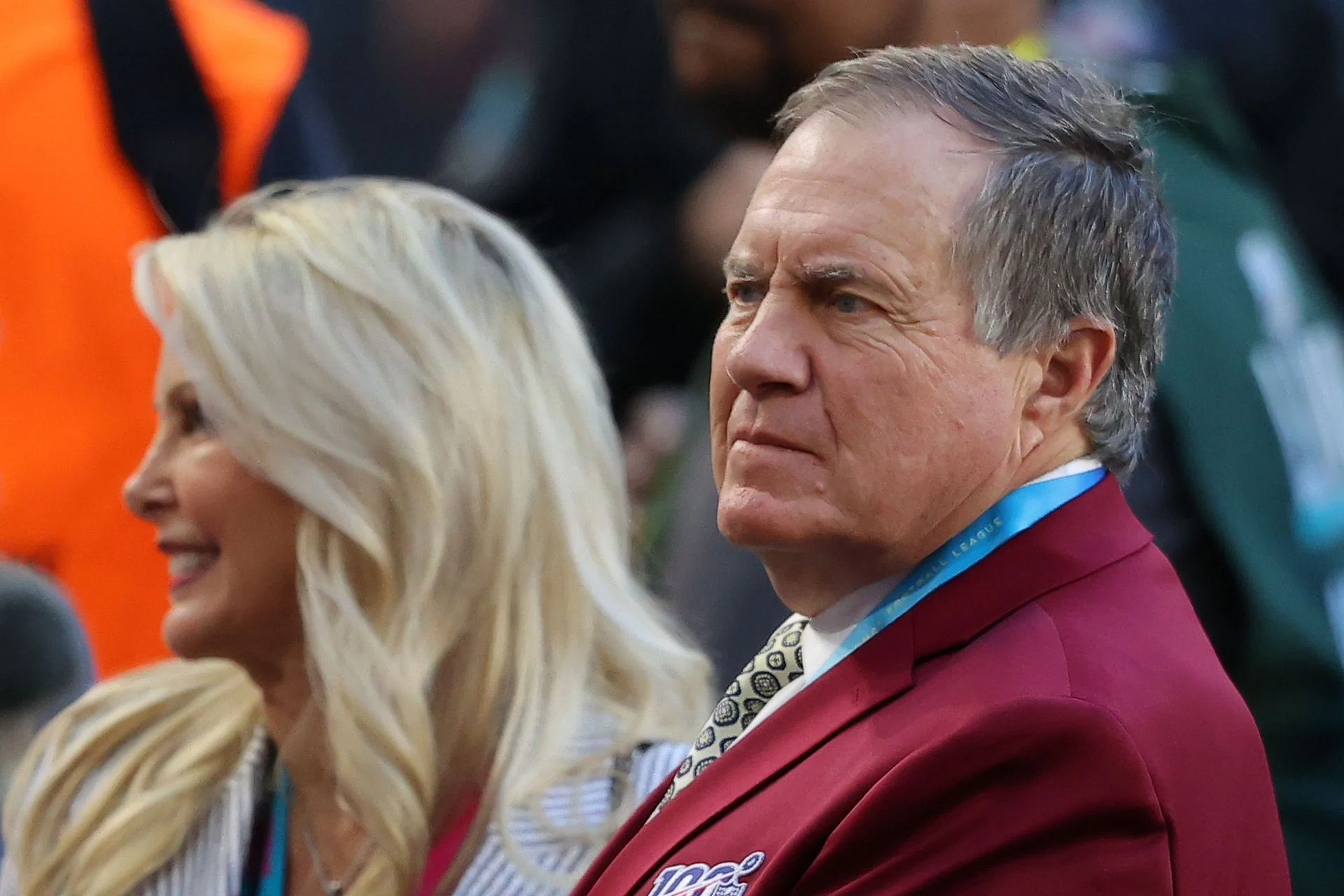In recent years, the term hoesluvkinz has emerged as a notable presence on social media platforms, captivating audiences and sparking discussions across various digital landscapes. This phenomenon encapsulates a bold approach to self-expression, lifestyle, and personal branding that resonates with many, particularly among the younger demographic eager to explore their identities in the expansive realm of social media.
The Rise of Hoesluvkinz: A Cultural Shift
The concept of hoesluvkinz signifies more than just an individual or a trend; it represents a wider cultural shift in how we present ourselves in the digital age. This section delves into the origins and evolution of this phenomenon, examining how it came to be a significant player in the social media ecosystem.
Historical Context of Social Media Influencers
Before the advent of platforms like Instagram and TikTok, the concept of influence relied on traditional media figures such as celebrities, authors, and public speakers. These individuals often shaped public opinion through established channels. However, the rise of social media democratized influence, allowing anyone with a smartphone to share their thoughts and experiences with a global audience.
As social media evolved, so did its users. Young individuals began utilizing platforms not merely for communication but as a means of personal branding. The emergence of influencers became a new paradigm, leading us to the birth of phenomena like hoesluvkinz.
The Role of Platforms: Instagram and TikTok
Instagram and TikTok have served as fertile grounds for cultivating the hoesluvkinz identity. Both platforms thrive on visual storytelling, which is essential to capturing the essence of this trend. On Instagram, users curate aesthetic feeds filled with bold imagery, while TikTok allows for creative expression through short videos that can go viral overnight.
This duality enables influencers like Mckinzie Valdez (@kinzievaldez) to craft multifaceted personalities, blending audacity with relatability. The accessibility of these platforms has led to the rapid dissemination of trends, making the hoesluvkinz phenomenon a focal point in online discussions surrounding individuality versus conformity.
The Impact of Content Creation on Personal Identity
Content creation under the hoesluvkinz banner has profound implications on personal identity. For many users, there is a fine line between authenticity and performance. By showcasing their lives—often with extravagant flair—these influencers navigate the complexities of self-representation in the digital arena.
The interplay between real-life experiences and curated content raises questions about genuine connectivity. Are followers engaging with the true personas of influencers, or merely a constructed facade? The answer may vary significantly depending on one’s perspective, thus fostering an ongoing dialogue about authenticity in the age of social media.
The Controversies Surrounding Hoesluvkinz
Despite its allure, the hoesluvkinz phenomenon is not without its controversies. The boldness of content often leads to polarizing opinions, reflecting broader societal tensions around issues such as body image, privacy, and ethical considerations in influencer marketing.
Personal Privacy and Security Concerns
One of the most pressing issues arising from the hoesluvkinz movement is the debate over personal privacy and security. With the sharing of intimate moments and personal details becoming commonplace, many influencers face challenges associated with maintaining boundaries.
The leak of sensitive content related to hoesluvkinz ignited heated discussions regarding the responsibility of influencers to protect their personal lives. Followers and critics alike question whether influencers are prepared to handle the repercussions stemming from their decisions to share intimate aspects of their lives publicly.
Ethical Implications of Influencer Practices
As the digital landscape expands, so too does the scrutiny placed upon those who inhabit it. The hoesluvkinz narrative raises questions about the ethical responsibilities of influencers. What obligations do they have to their audiences, especially regarding potentially harmful content?
Influencer marketing often blurs the lines of authenticity. Critics argue that some influencers, driven by commercial interests, may prioritize engagement over well-being, promoting unhealthy lifestyles or unrealistic standards of beauty. It begs the question: at what cost does virality come?
Societal Perceptions and Misconceptions
The audacious nature of hoesluvkinz can lead to misunderstandings and misconceptions about those who align themselves with this brand. Society often grapples with restrictive definitions of decency and morality, questioning the motives and values of influencers who present themselves in provocative ways.
While some view hoesluvkinz as a vehicle for empowerment and self-expression, others perceive it as a threat to conventional norms. This dichotomy fuels conversations about gender roles, sexual liberation, and societal expectations—ultimately shaping how we discuss and understand the movement.
Psychological Perspectives on Hoesluvkinz Followers
To fully understand the impact of hoesluvkinz, it’s vital to analyze the psychology behind its followers. The motivations and emotional responses of individuals engaging with this trend provide valuable insights into contemporary culture.
The Allure of Freedom in Self-Expression
One of the key attractions of the hoesluvkinz movement lies in its emphasis on unfiltered self-expression. Many followers are drawn to the idea of breaking free from societal constraints, embracing their true selves without fear of judgment.
This freedom is particularly appealing to younger generations, who often struggle with the pressures of conformity. By embracing the hoesluvkinz ethos, individuals find a community that celebrates diversity and encourages authenticity, fostering a sense of belonging in an increasingly complex world.
The Dangers of External Validation
However, the pressure to maintain an image can also lead to dependence on external validation. Many followers may find themselves seeking approval through likes, comments, and shares, inadvertently placing their self-worth in the hands of strangers.
This reliance can create a paradox where the very act of self-expression becomes tethered to societal expectations. Followers may feel compelled to conform to a specific ideal associated with hoesluvkinz, risking authenticity for the sake of acceptance.
The Social Influence of Community Dynamics
Communities centered around hoesluvkinz often foster supportive environments, where members encourage one another in their journeys toward self-discovery. However, these dynamics can also produce toxic behaviors, including comparisons and competitiveness.
The interplay between support and rivalry can shape user behavior significantly. While some individuals thrive in collaborative settings, others may struggle with feelings of inadequacy or exclusion. Understanding these group dynamics is essential in dissecting the psychological effects of engaging with the hoesluvkinz phenomenon.
The Future of Hoesluvkinz in a Changing Digital Landscape
As social media continues to evolve, so too will the hoesluvkinz phenomenon. Its trajectory raises important questions about the future of digital culture and the role influencers will play in shaping societal norms.
Evolving Definitions of Success in the Digital Age
As the lines between personal branding and commercial success blur, we must reconsider what constitutes “success” in the realm of influencers. Traditional metrics such as follower count or engagement levels may no longer suffice; emerging trends indicate that deeper connections and meaningful interactions will hold greater value.
With the rise of niche communities and targeted content, we might witness a shift towards quality over quantity in influencer marketing. As individuals redefine success, hoesluvkinz could pave the way for a more inclusive and diverse representation of online personas.
Navigating Ethical Considerations in Content Sharing
The conversation surrounding ethics in influencer practices is far from over. As the dangers of oversharing become increasingly apparent, influencers may face mounting pressure to uphold moral standards in content creation.
This evolution requires introspection within the influencer community, prompting discussions around accountability and transparency. As the stakes grow higher, adherence to ethical guidelines will be critical in ensuring a positive and impactful digital environment.
Bridging the Gap Between Authenticity and Performance
Ultimately, the challenge will lie in balancing authenticity with performance. As audiences demand realness from influencers, the need for nuanced representations becomes more pronounced. The hoesluvkinz movement serves as a reminder that while personal branding is essential, staying true to oneself should always take precedence.
Navigating this tightrope will require thoughtful consideration from both influencers and followers. It calls for open dialogues about expectations, vulnerability, and the ever-changing definition of authenticity in the digital age.
Ethical Responsibilities of Influencers
As the virtual landscape continues to expand with influencers at its forefront, understanding the ethical responsibilities they hold becomes increasingly vital. These digital creators wield significant power in shaping opinions, behaviors, and lifestyles—not just within their immediate communities but across vast global networks. The obligations they owe to their audiences must be scrutinized and articulated to foster accountability and responsible engagement.
Given the pervasive nature of social media, it’s crucial for influencers to consider the impact of their messaging and content. This goes beyond merely avoiding harmful materials; it entails an active commitment to promote wellbeing and authenticity. As we dissect these ethical obligations, we’ll explore several key areas, namely: honesty and transparency, the promotion of positive messaging, and the acknowledgment of potential harm.
Honesty and Transparency
The foundation for any relationship, including that between influencers and followers, is built on trust. Therefore, honesty and transparency are paramount. When influencers partner with brands, it’s essential that they disclose this information to their audience. This practice is not merely a legal obligation but an ethical one, as it empowers consumers to make informed decisions about the products they choose to engage with.
By openly sharing paid partnerships, influencers elevate the level of transparency in marketing practices. It suggests a commitment to authenticity—demonstrating to followers that their trust is valued. However, failure to disclose sponsorship can result in feelings of betrayal among followers, who may feel manipulated or misled. It raises the question: how can influencers cultivate meaningful connections if they aren’t upfront about their motivations? Striving for authenticity means openly admitting to commercial interests while still presenting genuine thoughts about the product or service in question.
Moreover, fostering open communication allows influencers to humanize themselves, creating room for vulnerability and connection. Sharing behind-the-scenes moments or the reality of struggles alongside their successes provides a well-rounded portrayal that resonates deeply with audiences. This candor promotes a culture where honesty is the norm rather than the exception, ultimately strengthening community ties and decreasing the potential for transactional relationships.
Promotion of Positive Messaging
While being honest is critical, actively promoting positive messaging is equally significant. The type of content presented by influencers has far-reaching implications; it shapes societal narratives around beauty, success, mental health, and more. Thus, influencers have a responsibility to advocate for inclusivity, diversity, and mental wellness within their platforms.
Instead of perpetuating unattainable beauty standards or unhealthy lifestyle choices, influencers can leverage their influence to champion body positivity, self-love, and acceptance. Highlighting diverse experiences and backgrounds contributes to a richer and more nuanced understanding of identity in society. A supportive platform enables followers to connect with varying perspectives, potentially redefining their notions of beauty and success.
Additionally, influencers should prioritize mental health conversations, using their platforms to destigmatize these topics. Sharing personal experiences or promoting resources for mental wellness encourages followers to seek help when needed. In this way, influencers can actively participate in transforming societal attitudes toward mental health—making it an integral part of the online dialogue. By focusing on positive messaging, influencers can engage their communities meaningfully, pushing back against the narratives that perpetuate negativity and harm.
Acknowledgment of Potential Harm
Finally, influencers must recognize the potential harm that certain types of content can inflict. Whether it’s glorifying dangerous diets, endorsing unrealistic beauty products, or trivializing serious issues like mental health, influencers play a critical role in shaping perceptions and behaviors. Acknowledging this power means taking intentional steps to prevent unintentional harm.
For instance, when discussing sensitive subjects, influencers can take proactive measures to provide trigger warnings or disclaimers when necessary. This practice conveys thoughtfulness and consideration for their audience, acknowledging that not everyone may be in the same place emotionally. Similarly, influencers can commit to steering clear of endorsement for products known to propagate unhealthy habits or ideologies—like weight loss pills or extreme fitness challenges without professional guidance.
Acknowledging potential harm also extends to recognizing the societal impact of their portrayal of lifestyle choices. Celebrated influencers can utilize their platforms to educate audiences about pitfalls associated with certain trends or products, providing alternative solutions instead. This action could serve as a gentle course correction amid harmful trends, reinforcing the idea that influencer credibility hinges upon a conscious awareness of their contributions to broader cultural discourses.
Conclusion
The ethical responsibilities of influencers are an evolving topic of discussion within an ever-changing digital landscape. As influencers gain prominence, society bears witness to their profound ability to impact individuals’ lives—both positively and negatively. The principles of honesty and transparency, the promotion of positive messaging, and the acknowledgment of potential harm all form integral components of an influencer’s ethical obligations.
Influencers operate within a unique position that grants them substantial reach and authority. Their approach to these responsibilities ultimately influences the kind of content that saturates social media feeds and dictates what becomes celebrated or criticized within modern culture. Moving forward, it will be imperative for influencers to embrace this responsibility, ensuring that their message resonates authentically and constructively through thoughtful engagement with their followers. Only then can the dynamic between influencers and their audiences evolve into a healthier and more impactful exchange, contributing positively to our collective digital experience.



